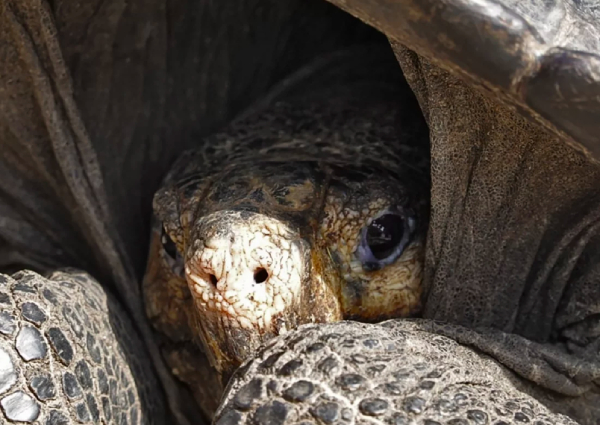Genetic tests have confirmed that a tortoise found on the Galápagos Islands is from a species that biologists thought had gone extinct more than a century ago.
The female was found during a 2019 expedition to Fernandina Island.
To show the link, scientists took samples from the female to compare to the body of a male from the species Chelonoidis phantasticus.
The last sighting of the species had been in 1906 made by the scientists from the California Academy of Sciences who went to the Galápagos Islands to carry out an extensive survey of their fauna and flora.
They took back the male tortoise to the university’s herpetology department, and it was specimens from there that allowed geneticists from Yale University to discover 115 years later that the female found in 2019 is undoubtedly a Chelonoidis phantasticus, also called Fernandina giant tortoise.
“It was supposed to have gone extinct more than 100 years ago”, Gustavo Manrique, the Environment Minister, tweeted. “Hope is alive,” he added.
The female Fernandina giant tortoise, which is determined to be more than 100 years old, is in a breeding centre on Santa Cruz Island.
Researchers have found faeces and prints on Fernandina Island, which they think shows more tortoise species left in the wild.
Danny Rueda, the Director of the Galapagos National Park, has said that a crew will be sent to Fernandina Island to track down the other members of the same species.









